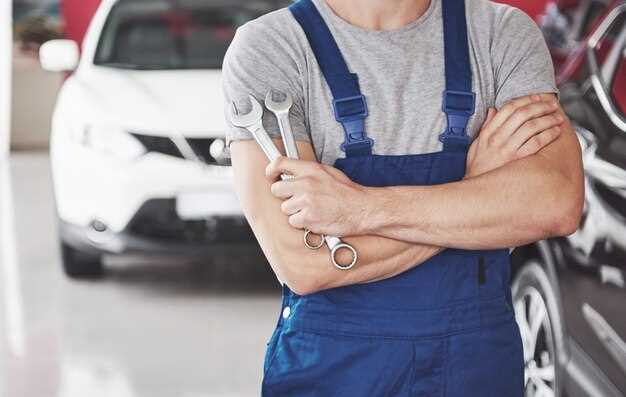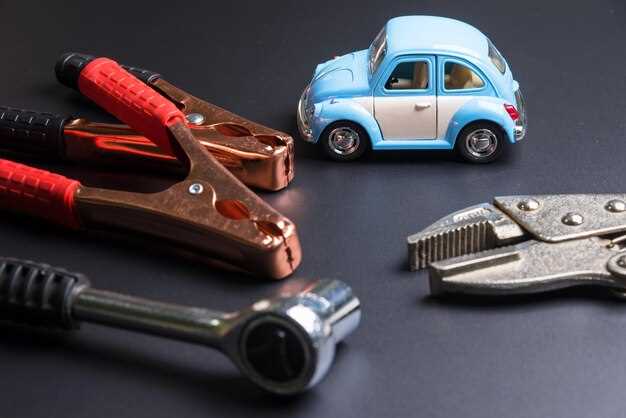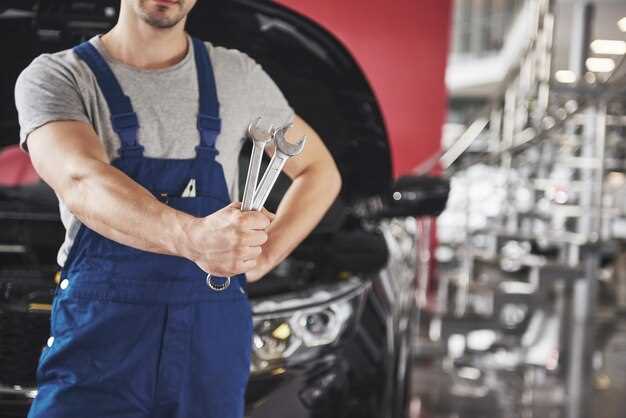
For every car owner, understanding the basics of car maintenance and repairs can save time and money. Whether it’s a simple DIY project or a more complex issue, having the right tools is essential. This article will explore the must-have tools that every car owner should keep in their garage, enabling them to tackle repairs with confidence and ease.
When it comes to repairs, having a well-stocked toolbox ensures that you are prepared for a variety of situations. From changing a flat tire to performing routine maintenance, the right tools make all the difference. Investing in high-quality equipment not only enhances your DIY capabilities but also prolongs the life of your vehicle.
In the fast-paced world we live in, car ownership can often be daunting. However, by equipping yourself with the essential tools, you can turn what seems like a chore into an enjoyable part of car ownership. This guide will help you identify which tools are essential for your DIY needs, providing peace of mind as you navigate the responsibilities of being a car owner.
Basic Hand Tools for Routine Maintenance

Owning a car requires a commitment to regular maintenance and occasional repairs. Whether you’re changing the oil, rotating tires, or fixing minor issues, having the right tools is essential. Below is a list of basic hand tools every car owner should have for routine maintenance.
1. Wrenches: A set of wrenches, including both open-end and box-end types, is crucial for loosening and tightening bolts. Socket sets, which include various sizes and extensions, can ease access to hard-to-reach areas.
2. Screwdrivers: A variety of screwdrivers, including flathead and Phillips, are necessary for tasks ranging from replacing a battery to securing loose components. Magnetic tips can be particularly beneficial for retrieving dropped screws.
3. Pliers: Pliers are versatile tools that can grip, twist, and cut wiring. Needle-nose pliers are especially useful for reaching into tight spaces, making them ideal for electrical repairs.
4. Jack and Jack Stands: A reliable jack can lift your car for tire changes and undercarriage inspections. Pair it with jack stands for safety, ensuring your vehicle remains elevated while you work.
5. Tire Pressure Gauge: Maintaining the correct tire pressure is vital for safety and fuel efficiency. A tire pressure gauge allows you to check and adjust tire pressure regularly.
6. Bungee Cords and Ropes: While not traditional tools, bungee cords and ropes can secure loose items and assist in transporting larger objects when needed.
7. Oil Filter Wrench: When performing oil changes, an oil filter wrench is essential for removing and installing the filter efficiently, reducing the risk of spills.
8. Multimeter: For diagnosing electrical issues, a multimeter is invaluable. It helps measure voltage, current, and resistance, assisting in identifying problems within the electrical system.
Investing in these basic hand tools will prepare you for most routine maintenance tasks and minor repairs, helping you keep your car in optimal condition.
Specialty Tools for Common DIY Repairs

Every car owner should be equipped with essential specialty tools to tackle common DIY repairs effectively. These tools facilitate various maintenance tasks, ensuring that both novice and experienced DIYers can manage car issues without unnecessary frustration.
One indispensable tool is the torque wrench. This tool allows users to apply a specific torque to nuts and bolts, which is crucial when working on car parts such as wheels and engine components. Proper torque ensures that fasteners are neither too loose nor overly tightened, preventing damage to parts and ensuring safety.
An OBD-II scanner is another valuable addition to any car owner’s toolkit. It helps diagnose engine problems by reading error codes from the vehicle’s onboard computer system. This tool enables owners to identify issues early, ensuring timely repairs and potentially saving money on more significant problems later.
A multimeter is essential for electrical work, allowing users to measure voltage, current, and resistance. This tool is particularly useful for troubleshooting electrical issues, such as faulty wiring or battery problems, which are common in many vehicles. Understanding electrical systems is vital for anyone looking to perform DIY repairs.
Another must-have tool is a brake caliper tool. This specialty tool simplifies the process of compressing the caliper piston when replacing brake pads. It ensures a smooth and efficient brake job, preventing damage to the caliper and ensuring optimal braking performance.
Finally, a set of feeler gauges is useful for various adjustments, particularly in engine tuning and valve clearance checks. These tools allow for precise measurements, ensuring that components fit perfectly and operate as intended. Regular use of feeler gauges can improve engine performance and longevity.
Equipping your garage with these specialty tools will empower you to perform common DIY repairs with confidence and efficiency. With the right tools at hand, maintaining your car becomes a manageable and rewarding task.
Safety Equipment Every Car Owner Should Have
Owning a car entails not only enjoying the freedom of driving but also taking responsibility for its maintenance and safety. For every car owner, having the right safety equipment is crucial, especially when it comes to unexpected repairs or emergencies. Here are essential safety tools every car owner should consider.
First on the list is a quality car jack and jack stands. These tools are vital for performing any DIY repairs or maintenance tasks. A sturdy jack allows you to lift your vehicle safely, and jack stands provide additional support, ensuring your car remains stable while you work underneath it.
Next, a comprehensive first aid kit is indispensable. Accidents can happen at any time, and having a well-stocked first aid kit allows you to address minor injuries on the spot. Ensure your kit includes bandages, antiseptics, and pain relief medication.
A fire extinguisher specifically designed for automotive use is another critical item. Car fires are rare but can occur due to electrical malfunctions or fuel leaks. Having an accessible fire extinguisher could potentially save lives and mitigate damage during such emergencies.
Reflective warning triangles or flares are essential for roadside emergencies. If your car breaks down, setting up these warning devices alerts other drivers and ensures your safety while waiting for assistance or making repairs.
A tire repair kit is also necessary for every car owner. Flats can happen out of nowhere, and being equipped with a tire repair kit allows you to fix minor punctures on the spot, saving time and trouble. Pair this with a portable air compressor to ensure your tires are always properly inflated.
Lastly, consider adding a multi-tool or a dedicated toolkit to your vehicle. A multi-tool can be beneficial for various tasks, from tightening loose screws to making quick adjustments. A toolkit containing essential wrenches, screwdrivers, and pliers can assist you in handling minor repairs without the need for professional help.
Having these safety tools not only equips you to handle emergencies but also helps you conduct regular maintenance and repairs, ensuring your vehicle remains in optimal condition.



